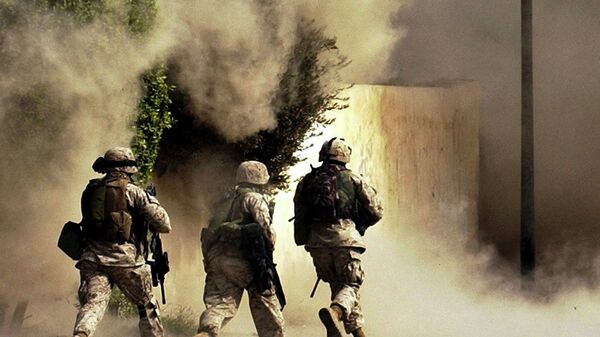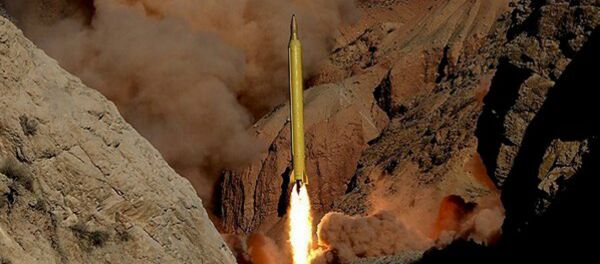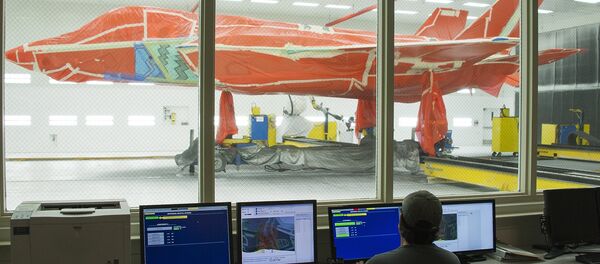America faces a growing challenge to convince the Iraqi people that the US military is acting to counter the influence of Daesh in the region, and is not aiding and abetting violent extremism.
Government-allied Shiite militiamen on the front-lines have been posting videos showing US supplies that were seized from Daesh or found in extremist compounds in liberated areas. The country’s newspapers and TV networks have begun theorizing that the US created the jihadi group to foment regional chaos and claim Middle East oil.
The rise of this local information counter-offensive comes as the anti-Western Mahdi Army witnesses a resurgence in Iraq. An Iranian-linked militia, led by Muqtada al-Sadr, became a leading adversary of the US-led occupation in Iraq, and is credited with hundreds of deaths of US service members through guerilla war tactics and the use of improved explosive devices (IEDs).
A Shiite militia, the Mahdi Army shares sectarian binds with Iraq’s leadership but whereas the country’s officials now welcome a US presence to combat the spread of Daesh, the Mahdi Army views the chaotic situation created by the extremist group as an opportunity to gain and consolidate regional control.
The US once again finds itself in a quagmire where the lines between allies and opposition are blurred. Since August 2014, the US has spent over $7 billion and carried out in excess of 5,000 airstrikes against the Daesh network in Iraq.
In order to get a handle on its clumsy campaign against the fundamentalist Sunni extremist group, the US must garner the support of the same moderate Sunnis that incomprehensibly persecuted in the post-Saddam debaathification process. But, in doing so, the US plays into the hands of the Mahdi Army, seeking to sow suspicion among Iraqi leaders that the US does not support the country’s current government.
To make matters worse, divisions between moderate tribal leadership and extremist groups like Daesh and al-Qaeda are tenuous at best. The Iraqi composition of the Daesh network includes former secular Sunnis who were Baathist loyalists under Saddam Hussein’s regime.
America looks to expand its troop presence in the region, and Congress continues to support military aid to rebel groups, only to have those same weapons turned against the United States, either in fact or in the easily-digested propaganda of Muqtada al-Sadr’s administration.
The country, suffering a decimated economic and social climate, finds itself once again persona non grata with State Department. Local polling shows that only 18 percent of Iraqis hold a favorable view of the US, compared to 38 percent in 2014. The US long ago lost the hearts and minds of the post-Saddam Hussein Iraq, where allegiances shift with the wind and stability is a mirage.







